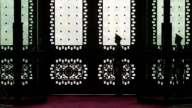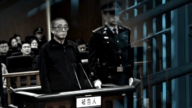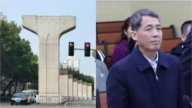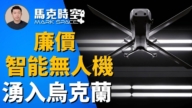【新唐人2013年11月14日讯】据大陆官媒日前透露的消息说,中共信访制度将进行重大变革——取消信访排名制度。也就是说,国家对各省市不再搞全国范围的信访排名、通报。有专家认为,中共这次举动的影响不亚于废除劳教制度。但访民和维权律师认为,当局不从根本上解决行政不公、官方权利不受制约等制度性问题,信访制度如何花样翻新,也无济于事。
据《新京报》11月11号报导,中共国家信访部门对各省份取消排名通报制度,不再搞全国范围的信访排名、通报,各级信访部门的信访工作将不再以信访数量多少为通报标准。
中共信访排名制度始于99年7.20以后,中共当局为了杜绝法轮功学员进京上访,令各地官员的升降赏罚与上访人数挂钩。
2005年,中共当局修订《信访条例》,将信访人数排名作为中共干部政绩考核指标之一,规定“各级党政领导成为信访责任人,管辖的区域内访民进京上访次数与党政领导的升迁直接挂钩”,将矛头从法轮功扩大到所有访民,导致各地政府不惜采取各种手段“截访”、“抓访”,甚至采用雇佣“黑保安”,私设“黑监狱”等违法行为,造成极大民怨。
大陆维权律师唐吉田:“我觉得,一定程度上,它是为了缓解社会压力,比较信访的这种弊端,可能是色彩上稍微有点淡化。实际上也是拉拢民众吧,或者是拉拢这些受害者。”
有媒体指出,当局改革信访制度,取消信访排名,目地在于抑制拦访、截访等问题,减少民众进京上访。而据记者了解,实际上从今年3月起,很多省份就已经开始执行这一政策,没有再收到国家信访局关于各省市“非正常上访”人次数的排名表。
不过,实际情况据访民反映,各地方政府截访、抓访现象依然不见减少。
上海访民俞忠欢:“据说大概今年上半年就开始执行了,但是还是有截访的。他也要想把你这个案子,把它瞒起来嘛!总归是,你不扣分,他也要拦截。官方拦访现象没有减少,越来越多。暴力拦访,也是一样的,而且现在手段越来越恶劣了,有的人已经被监控起来,有的可能还要拘留。”
大陆维权者人士认为,如果各地政府不在解决信访问题本身上下功夫,再大的政策调整也是无济于事。
俞忠欢:“这个政策也没什么用处,你问题不解决有什么用呢?你问题不解决的话,我想他还是要到北京去的。关键是解决问题。而且最主要是,解决问题的话,你关键是不能盖住,又要透明。”
据了解,目前取代以往信访排名通报制度的是“点对点”通报制度。就是对于各省份的信访工作,国家信访局直接根据了解到的情况与各个省份单独对接,进行一对一通报。对于信访问题较多的省份,国家信访局将对这些省份进行约谈。
唐吉田:“我觉得问题不在于信访制度上简单的这种调整,最根本上是信访制度设计有先天性问题。它是在行政违法和其他的官方权力不受制约、不受监督的情况下,很多人救济无门才会想到更高级别的官方机构,甚至是到北京去告御状,所以这是一个制度层面的问题,仅仅靠信访本身这种简单变化,它也解决不了根本问题。”
大陆维权律师唐吉田认为,这种由中央对地方,上级对下级的所谓“点对点”的垂直管理,很可能助长地方政府在信访统计等方面,更多的弄虚作假和水分,也会使官官相护之风越发严重。
采访编辑/张天宇 后制/钟元
Interception of Petitioners Continues to Increases with the New Petition System
The Chinese state media reported that the petition system
will change, i.e., separating local officials’ performance
assessments from the number of complaints against them.
Also,the state will no longer issue a nation wide ranking report
of criticism.
While some people praised this move as significant as the
abolition of reeducation through labor, our investigation shows
that people have very little confidence.
They indicate that fundamentally not rooting out systemic
administrative injustices, as well as refusing to constraining the
authorities, will not reduce grievances.
The Beijing News reported on November 11 that the ranking
of officials’ performance will no longer be judged by the
number of petitions.
Quantity of petition will no longer serve as the
standard for reports of criticism.
This “petition vs. ranking" system began after July 20 of 1999.
The Chinese Communist regime initiated this system of
officials’ promotion & demotion based on the number of
petitioners for the purpose of blocking Falun Gong
practitioners from petitioning to Beijing.
A 2005 amendment of the Petition Ordinance entails that party
and governmental officials are assessed according to the
number of petitions in the jurisdiction area.
This amendment has led to interception and detaining of
petitioners including Falun Gong practitioners and people
addressing all sorts of grievances.
Illegal set-ups such as the so-called black security (hired agency)
and black jail (usually hotel) are also created and have caused
great resentment.
Tang Jitian, human rights lawyer: “I believe, to a certain extent,
it is meant to relieve the social pressures brought about by people
trying to address their grievances.
It is in no way to comfort the general public or the victims."
There are media reports that canceling the system of
“ranking vs petition" is meant to prevent interception of
petitioners visiting Beijing.
Our reporter found that since March this year,
this policy has been enacted in many provinces,
and the ranking report of “abnormal rate of petitioning" is
no longer issued by the state petition office.
However, a petitioner reflects that the actual interception and
detention of petitioners have not reduced.
Yu Zhonghuan, a Shanghai petitioner: “The policy was said to
have been enacted earlier this year, but the interception has
not stopped.
They don’t want you to reveal your case. No matter what,
even though they won’t get point deducted, they will continue
to intercept.
They intercept more and even more violently now.
It is getting more severe.
Many have been under tight surveillance
and even detention."
Rights defenders don’t believe that any more policies will solve
the problem if the fundamental issues of the complaints
are not solved.
Yu Zhonghuan: “This policy is useless.
When the problem is not resolved, people will visit Beijing.
The key is to solve the problem, but most importantly,
keep it open and transparent."
The new policy will conduct an individualized ranking report
instead of the nation-wide ranking and report of criticism.
That means the state petition department will issue the report
individually to each province.
The state will also conduct individual investigation of the
province receiving the higher volume of complaints.
Tang Jitian: “I don’t think a slight adjustment in the petition
system is the issue.
The fundamental problem of the petition system is that
it comes with an innate defect.
It is an organization people will go to when there is official
violations and people have unresolved grievances.
Therefore, the problem is about the governmental system.
A change in the petition system won’t help to
solve the fundamental issue. “
Attorney Tang Jitian indicates that such a vertical management
of central to local could result in fraud and fabricated data
in local governments and more cover ups.
Interview & Edit/ZhangTianyu Post-production/ZhongYuan






























